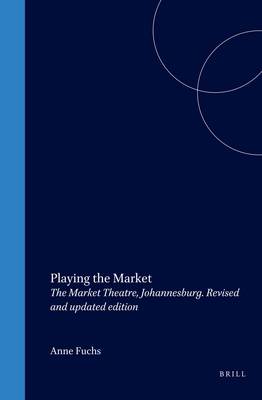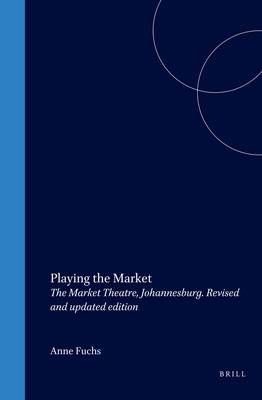
- Afhalen na 1 uur in een winkel met voorraad
- Gratis thuislevering in België vanaf € 30
- Ruim aanbod met 7 miljoen producten
- Afhalen na 1 uur in een winkel met voorraad
- Gratis thuislevering in België vanaf € 30
- Ruim aanbod met 7 miljoen producten
Zoeken
€ 169,45
+ 169 punten
Omschrijving
The relationship between Johannesburg's Market Theatre and the economic and political forces of South Africa's apartheid regime was both complex and somewhat ambiguous. The theatre's two founders, Mannie Manim and Barney Simon, however, from idealistic beginnings managed to steer their experimental enterprise around pitfalls ranging from censorship, boycotts and recuperation by big business to the difficulties encountered in finding black authors, let alone black audiences.
If the place occupied by the Market institution in apartheid society is emphasized throughout the present study, its contribution to the aesthetic of resistance is also underlined through detailed criticism of the plays and authors dominating the theatre. Pieter-Dirk Uys, Barney Simon's workshop plays and, among others, Black Consciousness plays are subjected to various methods of theatre performance analysis. The reckoning that had to come in the early 1990s revealed itself as globally positive; the reasons for this may be found in the updated concluding part of Playing the Market, which is composed of more general essays (including one on the vibrant Junction Avenue Theatre Company) on how the theatre scene in contemporary South Africa started to change. A postscript reveals more specific aspects of the Market situation in the late 1990s when its hegemony in the New South Africa was already being questioned.
If the place occupied by the Market institution in apartheid society is emphasized throughout the present study, its contribution to the aesthetic of resistance is also underlined through detailed criticism of the plays and authors dominating the theatre. Pieter-Dirk Uys, Barney Simon's workshop plays and, among others, Black Consciousness plays are subjected to various methods of theatre performance analysis. The reckoning that had to come in the early 1990s revealed itself as globally positive; the reasons for this may be found in the updated concluding part of Playing the Market, which is composed of more general essays (including one on the vibrant Junction Avenue Theatre Company) on how the theatre scene in contemporary South Africa started to change. A postscript reveals more specific aspects of the Market situation in the late 1990s when its hegemony in the New South Africa was already being questioned.
Specificaties
Betrokkenen
- Auteur(s):
- Uitgeverij:
Inhoud
- Aantal bladzijden:
- 284
- Taal:
- Engels
- Reeks:
- Reeksnummer:
- nr. 50
Eigenschappen
- Productcode (EAN):
- 9789042013285
- Verschijningsdatum:
- 1/01/2002
- Uitvoering:
- Hardcover
- Formaat:
- Genaaid
- Afmetingen:
- 155 mm x 230 mm
- Gewicht:
- 616 g

Alleen bij Standaard Boekhandel
+ 169 punten op je klantenkaart van Standaard Boekhandel
Beoordelingen
We publiceren alleen reviews die voldoen aan de voorwaarden voor reviews. Bekijk onze voorwaarden voor reviews.











